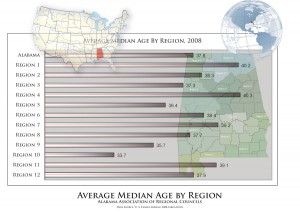 Planning is the reason most regional councils exist. In the mid-60’s, local governments were either:
Planning is the reason most regional councils exist. In the mid-60’s, local governments were either:
Required to have community and “areawide plans” to qualify for grants-in-aid; or
Were provided increased federal assistance if projects conformed with existing plans.
This direct incentive for planning no longer exists but there is a continued need to plan for the replacement of services and facilities and to meet new demands brought on by growth.
Regional councils can provide five (5) types of planning services. They are:
Local Planning
Many communities started local planning programs through the use of Housing and Urban Development 701 Planning Assistance Funds. This matching program enabled local communities to use federal and local dollars to prepare comprehensive plans, zoning ordinances, subdivision regulations, and certain types of special studies. Regional councils in Alabama have traditionally provided the professionally qualified staff to perform this type of work. Although the “701 Program” has been terminated a recent statewide survey of cities and counties showed a continued demand for local comprehensive planning.
Planning Advisory Services
Continuing planning and advisory services for zoning cases, site plan subdivision plat reviews, and plan updates are usually available from your region. This service provides regular staff assistance to your community board of zoning adjustment, planning commission, and governing body on planning and development issues.
Special Purpose Plans
Annexation studies, downtown revitalization projects, industrial sites/parks, historic building inventories, and space utilization of public facilities are only limited examples of the special planning studies which have already been prepared. Depending on the type of study required, limited financial assistance may be available to aid in its preparation. Any government needing a unique geographic, functional, or administrative study should contact its regional councils.
Regional Planning
Regional councils are a storehouse of information and plans on topics such as housing, water, sewer, transportation, and economic development. Using this data, the regional council can serve as an intergovernmental forum to develop comprehensive responses to various types of needs. Such responses become the revised blueprint for growth which guide the future development of the region.
State Planning
Under state law, regional councils are mandated to “prepare a regional plan consistent with state comprehensive planning.” The regional plans, for various facilities or services, although prepared by different regions, can frequently be pieced together to form state plans. This procedure is frequently followed to coordinate input for waterways, highways, infrastructure and major institutions which have significance for total state development.
In some instances, the state needs to have a specific plan or inventory of facilities conducted. The appropriate state agency will simultaneously contract with the regional councils to do the work. This approach is currently being used and represents the potential for developing current statewide plans to address issues and capitalize on opportunities. The Alabama Department of Economic and Community Affairs and the Alabama Association of Regional Councils frequently act in partnership when planning for both specific and general statewide needs, to determine those needs and develop solutions.